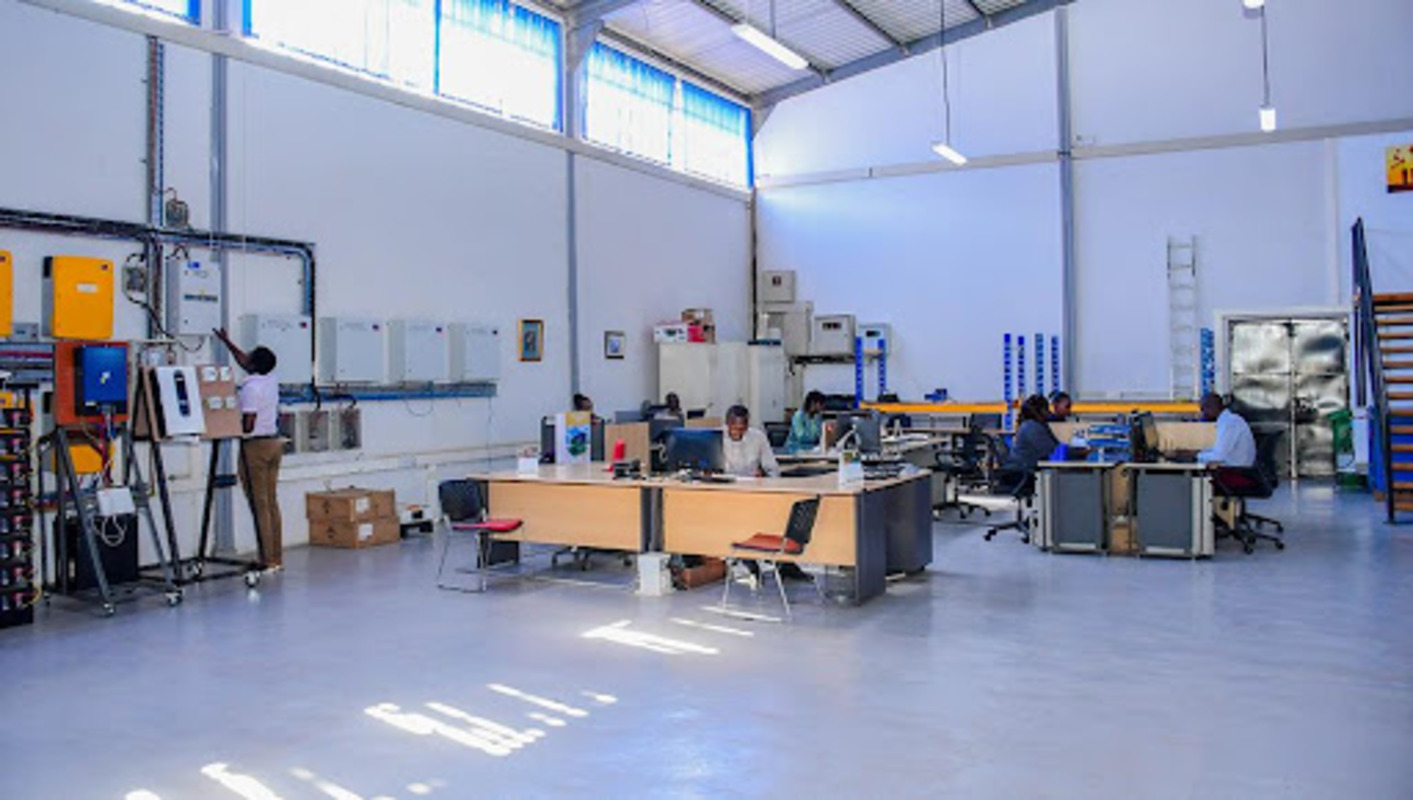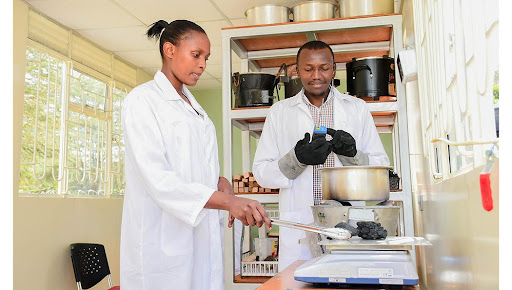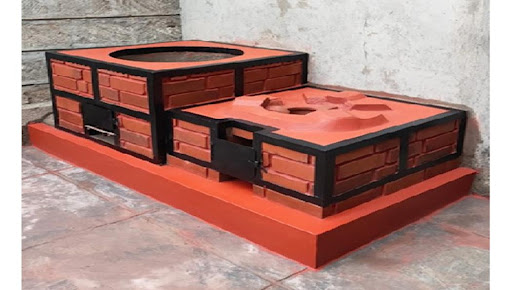
By Evans Ongwae
Through a GIZ-Green Climate Fund (GCF) project, Strathmore University Energy Research Centre (SERC) is empowering stove producers and last-mile entrepreneurs with skills to help them improve their access to productive resources and sustainable earning potential. These include market-oriented technical, entrepreneurial and managerial skills, confidence building, and other areas of expertise.
The project is systematically linked and integrated with other complementary interventions, such as access to markets, appropriate technology, microfinance, entrepreneurship development and follow-up technical assistance, as well as mentoring and coaching services. It adopts a comprehensive, demand-driven, and gender responsive strategy to help entrepreneurs in the cookstove sector to professionalise their businesses.
Under the quality assurance work package, the project further seeks to improve the efficiency, durability and safety of biomass cooking stoves in the country, which directly results in better quality of life in terms of health (reduced carbon emissions), time (reduce period of cooking), money (reduced cost of cooking) and climate (reduced deforestation). All the benefits are aligned to the Ministry of Energy and Petroleum (MoEP) goal of “Universal Access to Modern Cooking Solutions for all Kenyans by 2030” (revised to 2028 by the Principal Secretary, in 2019), and to the Sustainable Development Goal (SGDs).
In particular, the project supports SDG 7 on affordable and clean energy; SDG 3 on good health and well-being, with respect to reducing the number of household air pollution-related deaths, currently estimated at three million deaths annually (WHO 2022 household air pollution burden of disease); SDG 5 on gender equality by reducing drudgery in cooking, particularly for women and the girl child; and SDG 13 on climate action by reducing the emission of greenhouse gases (GHGs). SERC is doing so through quality assurance, and capacity building initiatives targeting the cookstove value chain.
Clean cooking drive

Pre-measurement of the amount of charcoal (fuel) used in the Hot Start Phase of the Water Boiling Test.
GIZ-GCF Project Coordinator, Teddy Nalubega, says clean cooking is of interest to Kenya. The Government is pursuing the goal of universal access to clean cooking (or climate-friendly cooking) by 2028.
She explains why this matters. “More than 80 percent of rural and urban Kenya combined use biomass for cooking (Sustainable Energy for all Africa hub 2023). This affects people’s quality of life (because inefficient cookstoves cause indoor air pollution, which is unhealthy). It causes loss of time (spent collecting wood fuel), and reduced forest cover.”
Ms Nalubega adds: “SERC comes in to provide a solution on how to reduce the sale of biomass cooking stoves that are less efficient, by helping grow the numbers and the sale of more efficient ones.”
SERC, she continues, established a lab for testing the efficiency levels of biomass cookstoves sold in the market.
She says that the lab initiated stove testing this year and has so far tested four brands and found the efficiency levels could be better. Three brands scored less than 35 percent.
Ms Nalubega says SERC encourages cookstove producers to ask for testing services at the Centre. The facility started testing with stoves brought in through the GCF project implementing partners such as GIZ, who work with producers. The testing lab is open to all cookstove producers for stove testing services, new product design and product improvement under research and development at SERC.
“We are working with cooking stoves producers and last mile entrepreneurs,” says Ms Nalubega.
The project is supporting these producers, most of them artisanal and others professional, to improve the quality of their stoves and raise efficiency levels to at least 35 percent or more, in line with Kenya Bureau of Standards (KBS) guidelines.

An energy-saving rocket stove.
Impact
Ms Nalubega sees the GIZ-GCF project’s quality assurance initiative at SERC making a major contribution towards clean cooking, with tremendous impact.
“It will help improve the quality of life (health and wealth) for cookstove users, especially women and children, save time and money, reduce deaths caused by indoor pollution, and (help) stem climate change,” asserts Ms Nalubega.
Professionalising the value chain
The Ag Co-Director at SERC, Prisca Atieno, says through the GIZ-GCF project, the centre is helping entrepreneurs in the cooking stoves value chain to professionalise their businesses.
“We are honing their entrepreneurial skills,” she says, adding that they are particularly bolstering women-led enterprises “to stand the test of time.”
She observes that the traditional biomass cooking stoves business is dominated by artisanal enterprises. “Their businesses can grow once they have been professionalised. They can get loans to expand their operations, and get large orders, for example, from the humanitarian sector,” says Ms Atieno.
SERC has developed a business development manual used in training this group of entrepreneurs “to bolster their entrepreneurial skills – such as developing sustainable business models, marketing and branding, calculating costs and pricing, financial planning and management, record-keeping, business planning, and ICT skills for business, among other modules.”
So far, SERC has trained 200 entrepreneurs, both men and women, with women-led enterprises accounting for 44 percent.
Ms Atieno adds: “We plan to reach out to more people and share knowledge with them. The training takes four to five days and most of it takes place at the county level.”
The project targets to have trained at least 1,000 by December 2024. Those who have received the training have experienced business growth, according to Ms Atieno.
Expansion of the training will involve SERC training Trainers of Trainers (ToTs). These trainers will offer training in the counties. This is through technical and vocational education and training (TVETs) in collaboration with the Ministry of Energy and the National Industrial Training Authority (NITA), Ms Atieno explains.
The GIZ-GCF project started in September 2021 and ends in December 2024.
About SERC
SERC is an applied technology laboratory within Strathmore University. Established in 2012, it carries out high-quality research, consultancy, professional training, laboratory testing and project development in the energy sector. SERC effectively offers these services to government agencies, private and public sector players.
To learn more about SERC and the services it offers, visit www.strathmore.edu
This article was first published on the Daily Nation and was written by Evans Ongwae

